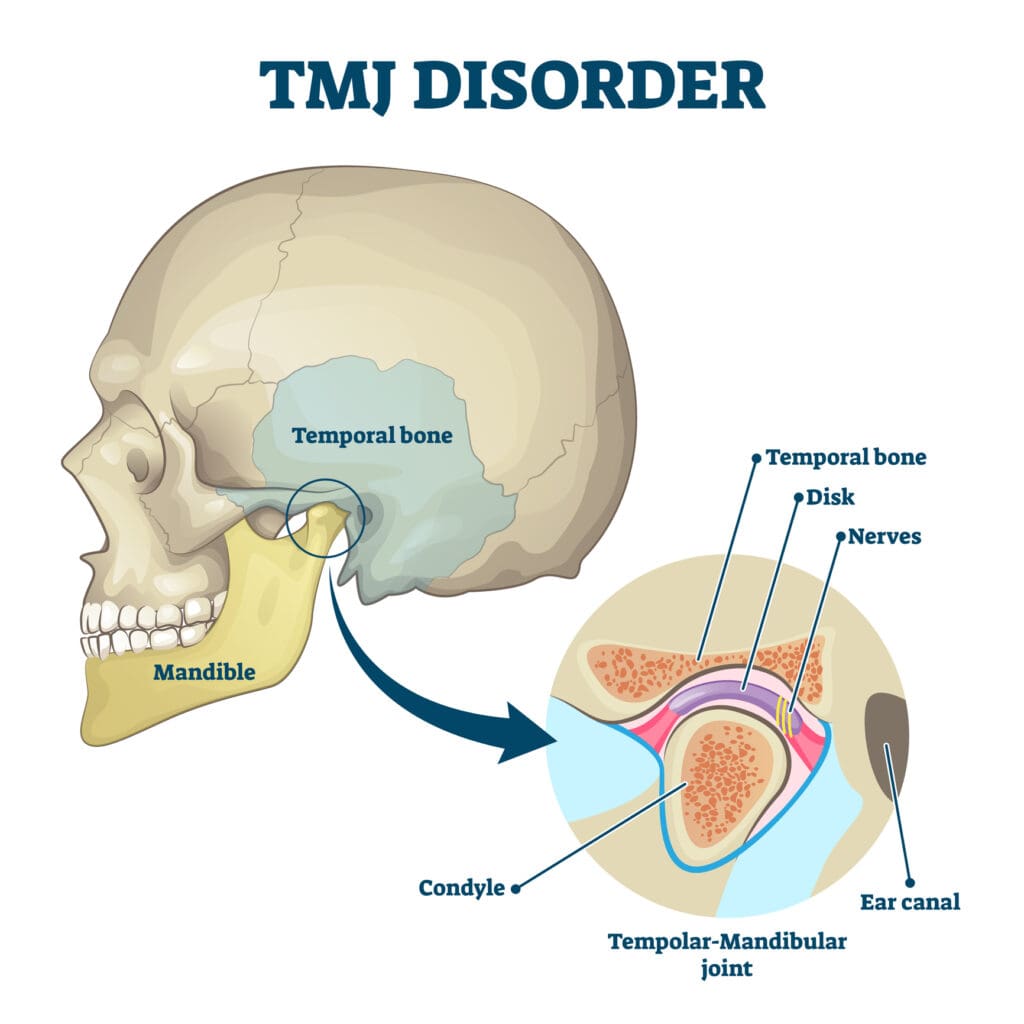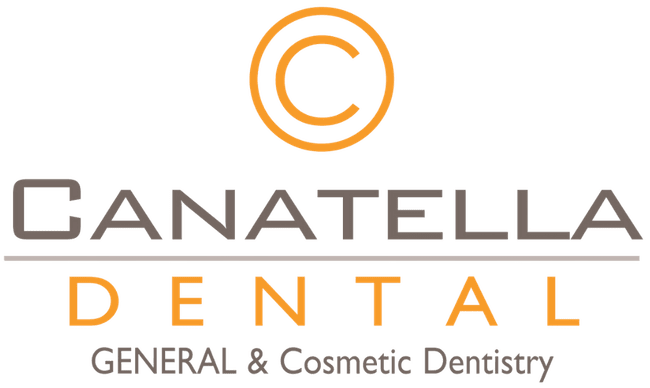Do you have jaw pain? If you have frequent discomfort in the jaw or difficulty chewing, you may have a temporomandibular disorder. Commonly called “TMJ,” temporomandibular disorders can cause a range of symptoms and affect your dental health. As part of our general dentistry services, we offer treatment for TMJ to relieve discomfort and restore jaw function.
Dr. Canatella provides dental care for TMJ to address symptoms and improve oral health. Early intervention and a comprehensive treatment plan can improve jaw function and a better quality of life.
What is TMJ?
Temporomandibular Joint Disorder, commonly known as TMJ, affects the joint connecting the jaw to the skull. This condition often leads to jaw pain, headaches, and difficulty chewing. People suffering from TMJ may experience a clicking or popping sound when they open or close their mouths. TMJ can result from various factors, including stress, bite problems, or injury. TMJ disorders can significantly impact daily life, making it essential to understand the condition and explore effective treatments.

Symptoms of TMJ
Identifying TMJ early can help manage the condition more effectively. Common symptoms include:
- Jaw pain or tenderness
- Difficulty in chewing
- Locking of the jaw
- Headaches or neck pain
- Ear pain or ringing
- Swelling on the side of the face
If you experience any of these symptoms, consult a healthcare provider for a proper diagnosis. Early intervention can prevent the condition from worsening and improve the quality of life. Chronic TMJ symptoms can lead to more severe complications, such as persistent pain and limited jaw movement. Therefore, recognizing the signs and seeking timely treatment is crucial.
Causes of TMJ
TMJ can stem from various causes. Understanding these can aid in preventing and treating the disorder. Common causes include:
- Injury to the jaw or head
- Arthritis in the temporomandibular joint
- Grinding or clenching teeth
- Stress, leading to muscle tension
- Misalignment of teeth or bite problems
Understanding the underlying causes can help in developing a personalized treatment plan. For instance, if stress contributes to TMJ, incorporating stress management techniques can be beneficial. Identifying and addressing the root cause can lead to more effective and long-lasting relief.
TMJ Treatment in New Orleans
Several non-surgical treatments can alleviate TMJ symptoms. These methods focus on reducing pain and improving jaw function. Non-surgical options are often the first line of treatment and can provide significant relief without the need for invasive procedures.
Physical therapy can offer facial exercises to strengthen jaw muscles and improve range of motion.
Dental Splints or Mouth Guards
Dr. Canatella often recommends dental splints or mouth guards to manage TMJ. These devices:
- Prevent teeth grinding and clenching
- Correct bite problems
- Reduce stress on the temporomandibular joint
Wearing these appliances can significantly alleviate TMJ symptoms. Custom-made splints or mouthguards fit comfortably and provide better results. They help maintain proper jaw alignment and prevent further damage to the joint. Regular use of these devices can lead to long-term relief from TMJ symptoms.
Preventing TMJ
Preventing TMJ involves adopting healthy habits and avoiding behaviors that strain the jaw. Consider these preventive measures:
- Avoid chewing gum or hard foods
- Practice good posture
- Use stress management techniques
- Wear a mouth guard if you grind your teeth
- Seek regular dental check-ups
These habits can help maintain jaw health and prevent TMJ symptoms. Avoiding excessive jaw movements and maintaining proper alignment can reduce the risk of developing TMJ. Regular dental check-ups can help detect early signs of TMJ and address bite problems before they worsen. Stress management techniques, such as exercise and relaxation, can prevent muscle tension and reduce the likelihood of TMJ.
